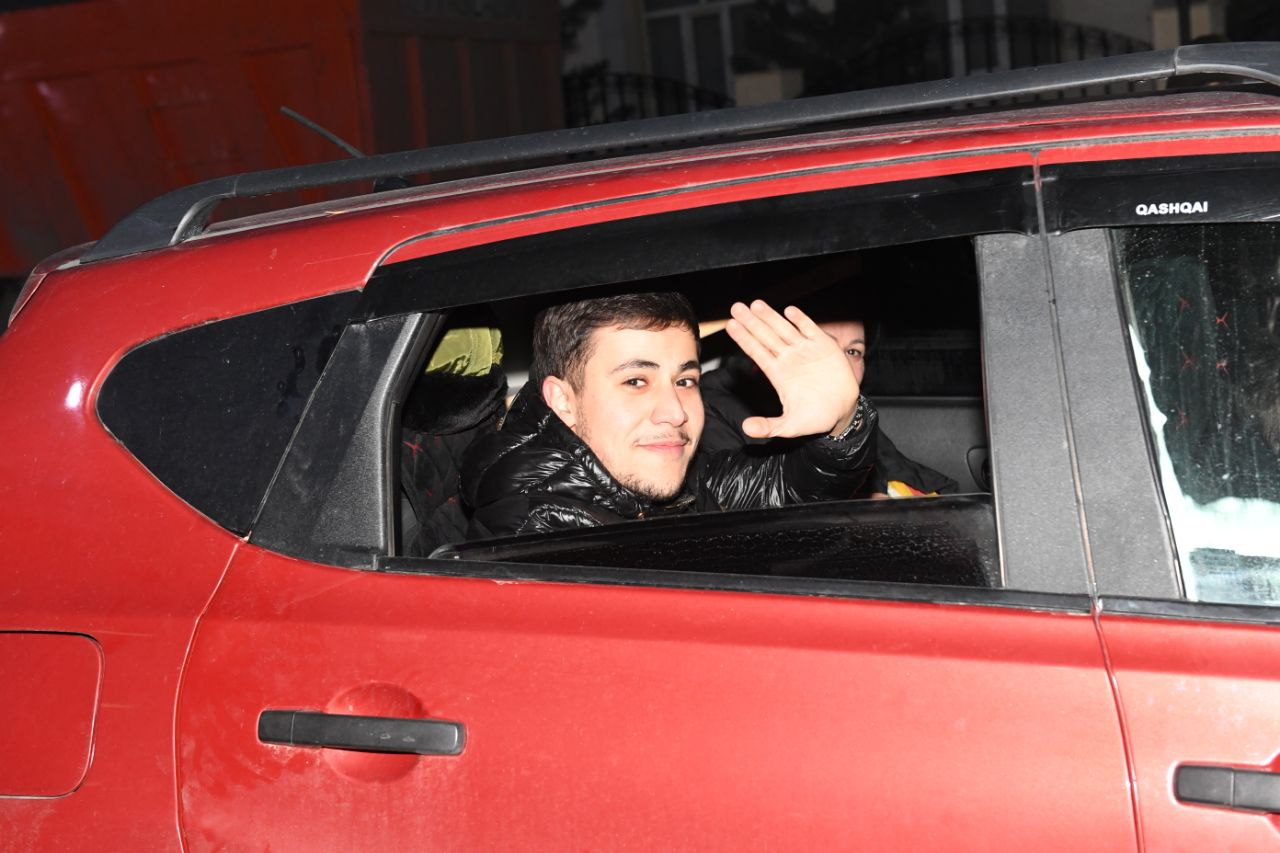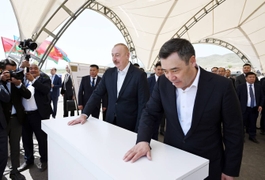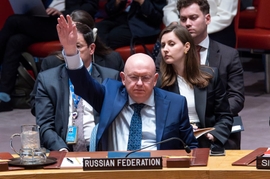The next group of former Azerbaijani IDPs returned to the country’s recently liberated Fuzuli district on Monday. A total of 94 individuals from 22 families, who had temporarily settled in hostels, sanatoriums, pioneer camps, unfinished buildings, and administrative premises across the Garadagh district of the capital Baku, left for their newly built houses in Fuzuli.
“Long years of longing are over. We are ready to revive our native land. We will rebuild Fuzuli and make it more beautiful than before,” Azertag quotes Zamina Aliyeva, one of the relocated IDPs, as saying.
Since the onset of Fuzuli’s repopulation in August of this year, 380 families consisting of 1,392 individuals have returned to the district.
Armenia and Azerbaijan had been locked in a decades-old armed conflict over the Karabakh (Garabagh) region, which is the internationally recognized territory of Azerbaijan. Following the Soviet Union’s dissolution in 1991, Armenia launched a military campaign against Azerbaijan. The bloody war lasted until a ceasefire was reached in 1994 and saw Armenia occupying 20 percent of Azerbaijan’s internationally recognized territories. Over 30,000 Azerbaijanis were killed, nearly 4,000 went missing, and one million were expelled from those lands in a brutal ethnic cleansing campaign conducted by Armenia.
In 1993, Armenia captured the Fuzuli district, including the city of Fuzuli and 51 villages. At least 55,000 Azerbaijanis were forcibly expelled from the district in a brutal ethnic cleansing campaign. Although a portion of the district was liberated by the Azerbaijani forces in 1994, a significant part remained under Armenian occupation for nearly three decades.
The renewed clashes between the Armenian and Azerbaijani forces broke out on September 27, 2020, after Armenia’s forces deployed in the occupied Azerbaijani lands shelled military positions and civilian settlements of Azerbaijan. The attack prompted immediate counter-attack measures by the Azerbaijani army. The hostilities lasted 44 days until the signing of a trilateral statement by Azerbaijan and Armenia through Russia’s mediation on November 10, 2020. By the end of hostilities, Azerbaijani forces liberated over 300 settlements, including the cities of Jabrayil, Fuzuli, Zangilan, Gubadli, and Shusha, from Armenian occupation. Under the statement, Armenia also returned the occupied Aghdam, Kalbajar, and Lachin districts to Azerbaijan.
Currently, Fuzuli, one of the districts in the Karabakh Economic Region of Azerbaijan, is being revived as part of the Azerbaijani government’s large-scale campaign to restore and reconstruct the liberated territories. The master plan for the city of Fuzuli, the district’s administrative center, has already been developed. According to the master plan, Fuzuli city will cover 1,936 hectares, and by 2040, it will be home to 50,000 people.
On October 18, 2021, President Aliyev broke ground for the “smart village” in the district. The project is being implemented using green and alternative energy and a “smart management” system. At the initial stage, 450 houses will be built. Also, the village will be surrounded by a “smart village” farm.
On October 26, 2021, President Aliyev and his Turkish counterpart Recep Tayyip Erdogan inaugurated the Fuzuli International Airport, the first all-new airfield launched in the liberated Azerbaijani lands. President Aliyev labeled the air harbor the “air gate of Karabakh.” The airport’s runway spans 3,000 meters in length and 60 meters in width. It is designed to receive all kinds of aircraft, including large cargo planes and small-sized private jets. The International Air Transport Association (IATA) granted the Fuzuli International Airport a three-letter distinguishing geocode – FZL. It was also assigned the UBBF code by the International Civil Aviation Organization (ICAO).
The Uzbek government sponsored the construction of a secondary school in Fuzuli upon the initiative of President Shavkat Mirziyoyev. The 960-seat school, named after the prominent medieval Uzbek statesman Mirza Ulugh Beg, was launched in August of this year.







 President Ilham Aliyev shed light on the evolving contours of the peace process with Armenia during an international conference in Baku this week. ...
President Ilham Aliyev shed light on the evolving contours of the peace process with Armenia during an international conference in Baku this week. ...
 Azerbaijan and Armenia started the process of demarcation of their border on Tuesday, with the installation of the first border markers based on ge...
Azerbaijan and Armenia started the process of demarcation of their border on Tuesday, with the installation of the first border markers based on ge...
 Iranian President Ebrahim Raisi expressed Tehran’s readiness to participate in significant development projects in Sri Lanka during the inauguratio...
Iranian President Ebrahim Raisi expressed Tehran’s readiness to participate in significant development projects in Sri Lanka during the inauguratio...
 As the conflict between Ukraine and Russia escalates, the strategic importance of Kharkiv, Ukraine's second-largest city, has come sharply into focus.
As the conflict between Ukraine and Russia escalates, the strategic importance of Kharkiv, Ukraine's second-largest city, has come sharply into focus.
 Iran and Pakistan have signed eight cooperation documents in various fields, and agreed to strengthen ties to fight terrorism in the region.
Iran and Pakistan have signed eight cooperation documents in various fields, and agreed to strengthen ties to fight terrorism in the region.



